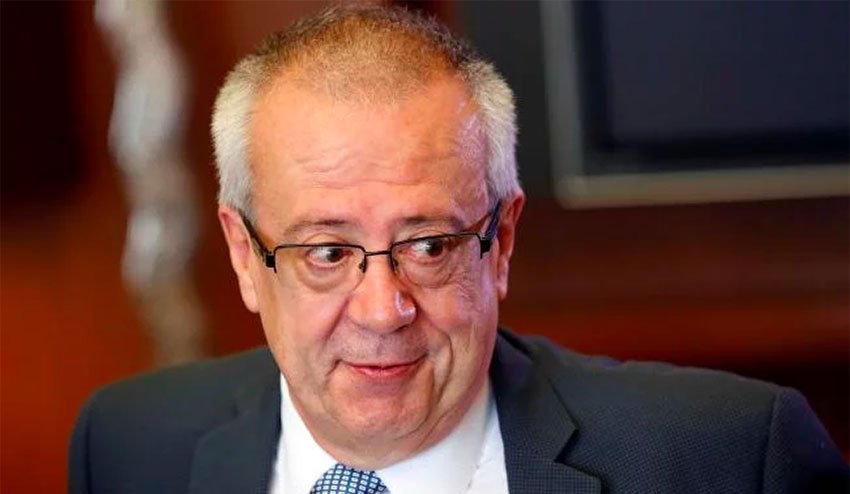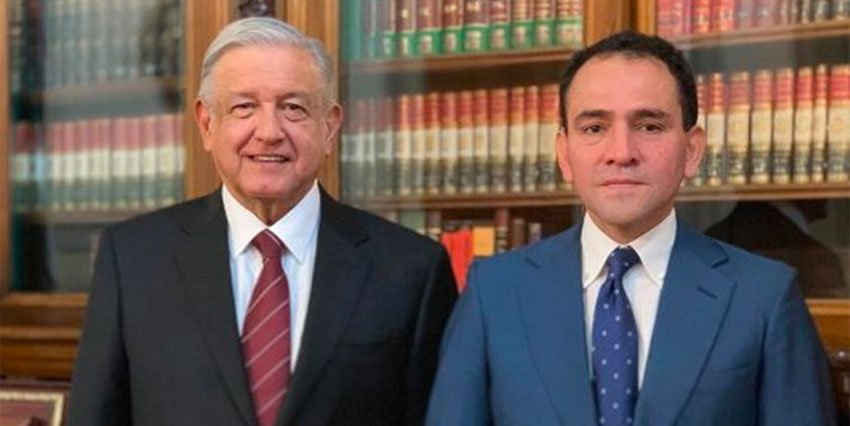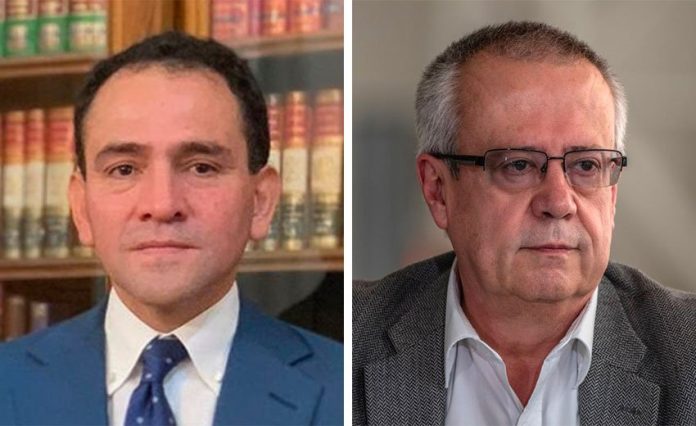Finance Secretary Carlos Urzúa announced his resignation today in a strongly worded letter that criticized the public policy decision making process within the government and the appointment of officials with no knowledge of public finances.
“Discrepancies over economic matters were plentiful,” Urzúa wrote in a letter addressed to President López Obrador that he also posted to his Twitter account.
“Some of them were because in this administration public policy decisions have been taken without sufficient foundation. I am convinced that all economic policy must be made based on evidence, paying attention to the various effects it may have,” he wrote, adding that policy should also be free of left-wing and right-wing extremism.
“However, during my tenure these convictions were not echoed,” he said.
Urzúa also said that the appointment of officials to his secretariat who “have no knowledge of public finances” was “unacceptable.”

Such appointments were made by “influential people in the current government with a clear conflict of interest,” he charged.
“For the above reasons, I have no option but to resign my post. Thank you very much for the privilege of . . . serving Mexico.”
Urzúa is the third cabinet-level official to resign from the López Obrador administration after the departures of Mexican Social Security Institute chief Germán Martínez in May, and Environment Secretary Josefa González-Blanco later the same month.
The peso dropped 2% against the U.S. dollar on news of Urzúa’s resignation, while Mexican stocks also took a hit, losing 3% of their value compared to trading earlier in the day.
Urzúa, a former economics professor at the University of Wisconsin and Mexico City finance chief when López Obrador was mayor of the capital between 2000 and 2005, served as secretary of finance since the new government took office last December. He recently represented Mexico at the G20 summit in Osaka, Japan.
Public debt didn’t grow during Urzúa’s tenure at the helm of the Finance Secretariat (SHCP) but economic growth has been sluggish and 2019 forecasts of several analysts have slumped to just over 1%.
A report in the newspaper El País said the secretary’s resignation “opens the biggest crisis in the seven months” of the López Obrador administration.
The report pointed to the forceful language used by Urzúa in his resignation letter as evidence of the magnitude of the problems within the government.
El País asserted that one of the “influential people” in the government “with a clear conflict of interest” that the outgoing secretary referred to in his resignation letter is presidential chief of staff Alfonso Romo.
López Obrador wasted no time in naming a new finance secretary, announcing in a video posted to social media that finance undersecretary Arturo Herrera will assume the role.
The president acknowledged that Urzúa was not “in agreement with the decisions we are making, and we have the commitment of changing the economic policy that has been imposed for the past 36 years.”
“As it is a change, a transformation [that the government is carrying out], sometimes it’s not understood that we can’t continue with the same strategies. You can’t put new wine in old bottles. It’s a change, a transformation not a simulation, it’s not more of the same,” López Obrador said.

Herrera, who was contradicted by López Obrador in March after saying that the Tabasco oil refinery project would be postponed, is a public official with a “social dimension and that’s why I made the decision to appoint him,” the president said.
He added that the change at the helm of the SHCP was being made to ensure that the economy “is always at the service of citizens . . . and especially at the service, in a preferential way, of humble people, poor people.”
López Obrador said that his government aims to “create wealth to distribute wealth – it’s not a matter of growing [the economy] for growth’s sake.”
As secretary, Herrera said, he would focus on tacking inequality, recognizing that Mexico is a country with “great things but also with deficiencies and [economic] contrasts.”
The appointment was well received by several analysts but Ilya Gofshteyn, a senior emerging markets macro strategist at Standard Chartered Bank, told Bloomberg that the market is right to take the resignation of Urzúa seriously.
“Urzúa was seen as ‘the adult in the room’ in the AMLO administration, someone who lent credibility to an otherwise economically heterodox administration,” he said.
Claudia Ceja, a strategist at BBVA financial group in Mexico City, said the immediate nomination of Herrera is “positive” but acknowledged that “the criticism from Urzúa is very strong.”
“Even if the government is able to assign another market friendly minister, the fact that Urzúa is openly criticizing the decision making is certainly negative,” she said.
Shamaila Khan, director of emerging market debt at AllianceBernstein in New York, told Bloomberg that “Herrera has interacted with investors extensively, so he is not a concern.”
She charged that “it’s really the government policies that are a concern,” adding that they are “unlikely to change as a result of the resignation.”
Alberto Ramos, chief Latin America economist at Goldman Sachs in New York, said that Urzúa’s resignation letter is “unconventional and direct.”
“It expresses clear dissatisfaction with internal policy and personnel dynamics within the AMLO administration,” he told Bloomberg.
“This is an unexpected and negative development for it suggests: (1) significant policy and inter-personal frictions within the AMLO administration and (2) that economic policy decisions may be guided and informed by non-economic/financial criteria and led by policy makers without the required and relevant credentials to define policy and manage the fiscal accounts.”
Source: El Economista (sp), El Financiero (sp), CNBC (en), El País (sp), Milenio (sp), Bloomberg (en)
